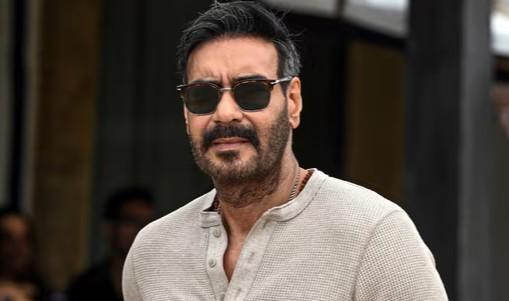
Title: No Solidarity Among Today’s Generation of Actors: Sooraj Pancholi
The Bollywood industry has always been known for its glamour, drama, and of course, camaraderie among its stars. However, it seems that this sense of unity and brotherhood is fading away with each passing day. Actor Sooraj Pancholi recently expressed his concerns about the lack of solidarity among today’s generation of actors. In a candid interview, he revealed that he believes the bond between actors is rare in today’s Bollywood, and that everyone is more concerned about their own interests than supporting each other.
Sooraj Pancholi, who made his debut in the industry with the film “Hero” in 2015, believes that the older generation of actors had a stronger sense of unity and camaraderie. He reminisced about the days when his father, Aditya Pancholi, and other renowned actors like Jackie Shroff and Sanjay Dutt were part of the same industry. “My father Aditya Pancholi, Jackie Shroff, Sanjay Dutt…those guys had each other’s backs…that bond is rare now,” he said.
Sooraj’s comments are not entirely unfounded. Over the years, we have seen several instances of actor feuds, controversies, and ego clashes that have made headlines. From the infamous spat between Shah Rukh Khan and Salman Khan to the ongoing rivalry between Ranbir Kapoor and Ranveer Singh, it seems that the industry is plagued by petty squabbles and power struggles.
But what’s causing this lack of solidarity among today’s actors? Is it the cutthroat competition, the constant pressure to perform, or is it something more deep-seated? Sooraj believes that it’s a combination of factors. “People don’t want to get involved in anyone’s issues,” he said. “Everyone is more concerned about their own career, their own image, their own reputation. No one wants to take a stand or support someone who’s going through a tough time.”
This lack of solidarity can have far-reaching consequences. When actors are more concerned about their own interests than their colleagues, it can lead to a toxic and competitive environment. It can also make it difficult for new actors to break into the industry, as they are often left to fend for themselves without the support of their peers.
Sooraj’s comments have sparked a heated debate in the industry, with many actors and experts weighing in on the issue. Some have argued that the industry is becoming more commercialized and that the focus on box office numbers has led to a decline in the sense of unity and camaraderie. Others have suggested that the pressure to conform to societal norms and expectations is taking a toll on the mental health of actors, leading to a sense of isolation and disconnection.
Whatever the reason, it’s clear that the Bollywood industry is facing a crisis of solidarity. As Sooraj Pancholi pointed out, the older generation of actors had a stronger sense of unity and camaraderie, and it’s time for today’s generation to learn from their example.
So, what can be done to restore the sense of solidarity in the industry? One possible solution is for actors to prioritize the well-being and success of their colleagues above their own interests. This can be achieved by supporting each other through thick and thin, offering words of encouragement and advice, and being there for each other during difficult times.
It’s also important for the industry to promote a culture of inclusivity and diversity. By providing opportunities for new and emerging talent, and by celebrating the achievements of actors from all backgrounds, we can create a more cohesive and supportive community.
Finally, it’s up to the industry to recognize the importance of mental health and well-being. By providing resources and support for actors struggling with anxiety, depression, and other mental health issues, we can create a more compassionate and empathetic environment.
In conclusion, Sooraj Pancholi’s comments serve as a wake-up call for the Bollywood industry. It’s time for today’s generation of actors to prioritize solidarity and camaraderie, and to recognize the importance of supporting each other. By doing so, we can create a more positive, inclusive, and successful industry that benefits everyone involved.




